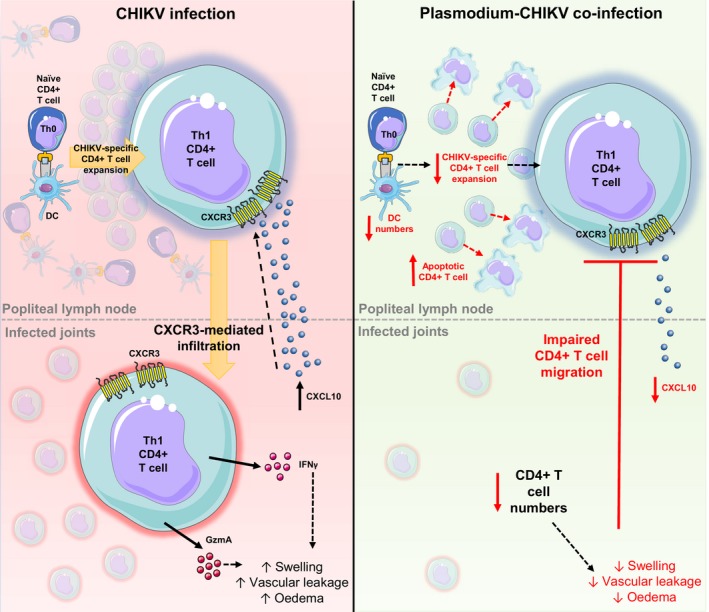Figure 1.

Malaria co‐infection impairs CHIKV‐specific CD4+ T cell responses in the pLN‐footpad axis. In CHIKV‐infected mice, virus‐specific CD4+ T cells multiply in the popliteal lymph node (pLN) and acquire a Th1 phenotype. Th1 cells migrate to infected tissues through a CXCR3‐mediated mechanism and potentially drive footpad swelling by releasing cytokines such as INFγ and GzmA. Upon co‐infection, a drop in the numbers of conventional dendritic cells (DCs) in the pLN is associated with diminished expansion of pathogenic CD4+ T cells. Moreover, malaria infections supress CHIKV‐specific CD4+ T cell responses by inducing early apoptosis of pLN CD4+ T cells and affecting CXCR3‐mediated joint infiltration thus leading to suppression of joint swelling. CXCL10: C‐X‐C motif chemokine 10, INFγ: interferon gamma, GzmA: granzyme A. This figure contain modified images from Servier Medical Art, licensed under a Creative Common Attribution 3.0 Generic License. http://smart.servier.com/
